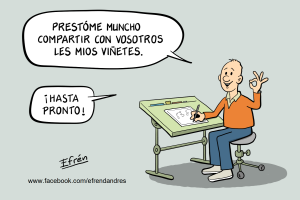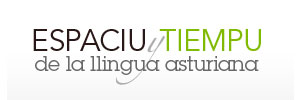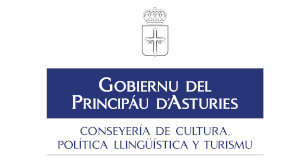The Modern Age
15 Avientu, 2008 por Asturies.com
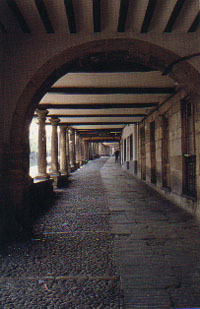
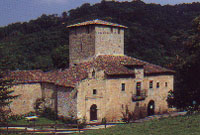
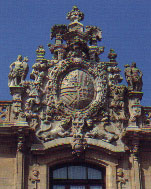
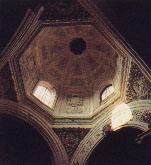
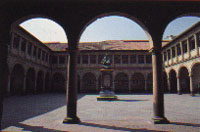
During the sixteenth and seventeenth centuries the isolation
of Asturies from the decision-making centres of the Spanish empire is such
that in 1518, the Dominicans arrived in Uviéu to found a monastery
referred to "the overgrown mountain"; just as the Jesuits would
refer to the whole of Asturias as "the Indies that we have here in Spain".
This was a time of famine, epidemics and catastrophes such as the fires of
Avilés and Uviéu, which devastated their respective town centres,
being at once causes and consequences of the poverty of a population submitted
to what amounted to hard labour on land belonging mostly to the Clergy and
the Nobility.
In the midst of such affliction, however, the University of Uviéu was founded in 1574 at the expense of the Asturian Fernando de Valdes Salas, Inquisitor General, Archbishop of Seville and confessor to the Emperor Felipe II. It was no doubt intended to rescue his own country from its state of backward, secular abandon, built from a perspective which saw Asturies as a "de-Christianised" land which, as such, qualified as a "mission" or "land of (savage) Indians" within Spain. In the eighteenth century, a series of circumstances favourable to the apparition of a current of thought within certain sectors of the powerful classes which would blossom into the birth of the philosophical and literary Illustration movement. The traditional marine trade routes of the country favoured the entry through its ports of the works of writers such as Rousseau, Voltaire and the Encyclopaedists, and with them new ideas of progress from the continent. It was the so-called "century of light", in which, from among a constellation of names, that of Don Gaspar Melchor de Jovellanos was to shine out most strongly as one of the most notable personages to come from the Spanish peninsular. One of his principal interests was the economic and cultural progress of Asturies, and he was to be the first to pursue a development programme based on the recent discovery of coal deposits, planning an infrastructure around them, establishing communications within Asturies and with the rest of the Peninsular, and implementing the latest scientific teachings in the technology used. On May 25th, 1808, the General Assembly of the Princedom of Asturies proclaimed its own sovereignty in opposition to a centralised state power bent under French authority, sent ambassadors to England and declared war on Napoleon.
In the midst of such affliction, however, the University of Uviéu was founded in 1574 at the expense of the Asturian Fernando de Valdes Salas, Inquisitor General, Archbishop of Seville and confessor to the Emperor Felipe II. It was no doubt intended to rescue his own country from its state of backward, secular abandon, built from a perspective which saw Asturies as a "de-Christianised" land which, as such, qualified as a "mission" or "land of (savage) Indians" within Spain. In the eighteenth century, a series of circumstances favourable to the apparition of a current of thought within certain sectors of the powerful classes which would blossom into the birth of the philosophical and literary Illustration movement. The traditional marine trade routes of the country favoured the entry through its ports of the works of writers such as Rousseau, Voltaire and the Encyclopaedists, and with them new ideas of progress from the continent. It was the so-called "century of light", in which, from among a constellation of names, that of Don Gaspar Melchor de Jovellanos was to shine out most strongly as one of the most notable personages to come from the Spanish peninsular. One of his principal interests was the economic and cultural progress of Asturies, and he was to be the first to pursue a development programme based on the recent discovery of coal deposits, planning an infrastructure around them, establishing communications within Asturies and with the rest of the Peninsular, and implementing the latest scientific teachings in the technology used. On May 25th, 1808, the General Assembly of the Princedom of Asturies proclaimed its own sovereignty in opposition to a centralised state power bent under French authority, sent ambassadors to England and declared war on Napoleon.


